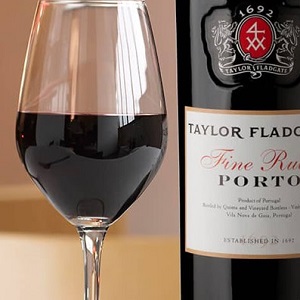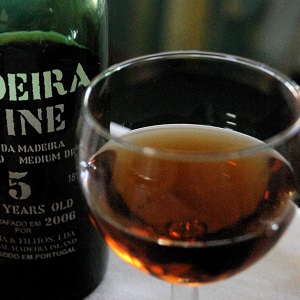Fortified Wine Regions
The key regions for fortified wine production include Jerez (Spain) for Sherry, the Douro Valley (Portugal) for Port, Madeira (Portugal) for Madeira wine, and various regions in Italy for Vermouth.
Each region’s unique geography, climate, and terroir plays a significant role in shaping the characteristics of these wines.

Port Wine

Sherry

Madeira
Sherry (Jerez, Spain)
The warm climate and the albariza soil are the keys to achieve the high-quality, concentrated base wines needed for Sherry.
Fino
Geography and Terroir
Jerez is located in the southwest of Spain, near the Atlantic coast in the region of Andalusia. The area’s chalky, white albariza soil is rich in limestone, which retains moisture, essential for the region’s dry and hot summers.Climate
Jerez has a Mediterranean climate with hot, dry summers and mild, wet winters. The proximity to the Atlantic provides cooling breezes, moderating the intense heat and creating ideal conditions for growing Palomino, Pedro Ximénez, and Moscatel grapes.
Port (Douro Valley, Portugal)
Port wines are known for their richness, sweetness, and high alcohol content.
Geography and Terroir
The Douro Valley is one of the world’s oldest demarcated wine regions, situated in northern Portugal. The steep, terraced vineyards along the Douro River are planted on schist soil, which has good drainage and heat retention, allowing for optimal ripening of grapes. These terraces face various directions, with sun exposure impacting the ripeness and sugar levels in grapes.Climate
The Douro Valley has a hot continental climate, with extremely hot, dry summers and cold winters. The region is sheltered from Atlantic influence by the Marão and Montemuro mountains, which results in extreme temperature variations. This leads to very concentrated, robust grapes.
The combination of schist soils, steep slopes, and a hot, continental climate yields grapes with high sugar and flavor concentration, ideal for producing the sweet, fortified style of Port.
Madeira (Portugal)
Madeira is known for its distinctive aging process and high acidity, both of which contribute to its exceptional longevity.
Geography and Terroir
Madeira is a small volcanic island in the Atlantic Ocean off the coast of Morocco. Vineyards are planted on steep, terraced hillsides with volcanic soils, which are rich in minerals and well-draining. The challenging landscape requires manual cultivation.Climate
Madeira has a mild subtropical climate with high humidity and substantial rainfall, particularly on the north side of the island. The ocean moderates temperatures, creating an environment where grapes retain high acidity.
Madeira’s unique estufagem (heating) and canteiro (natural aging in warm cellars) processes are adapted to the island’s climate and enhance the wine’s stability and complexity, creating Madeira’s trademark caramelized, nutty profile.
Vermouth (Italy)
Geography and Terroir
Vermouth production is centered in Piedmont, particularly in the city of Turin, but also extends to other regions of Italy. Base wines for vermouth are often sourced from Piedmont or other nearby regions in Italy.Climate
Piedmont has a continental climate with hot summers and cold winters. The region’s terroir allows for the production of high-acid white wines (often from Moscato, Trebbiano, or Cortese grapes) that serve as ideal bases for vermouth.
Influence of Geography, Climate, and Terroir
The geography, climate, and terroir play a critical role in shaping the styles and quality of the fortified wines they produce.
Each fortified wine regions brings together specific geographic and climatic conditions that influence the styles, flavor profiles, and aging potentials of their wines, making them distinct and celebrated in the world.
Hot, Dry Regions (Jerez and Douro)
In Jerez and the Douro Valley, the hot, dry climates promote high sugar levels in grapes, essential for creating the rich, concentrated base wines required for Sherry and Port. Soil types, like the albariza in Jerez and schist in the Douro, retain moisture and heat, contributing to vine resilience and grape ripeness.Mild, Humid Regions (Madeira)
Madeira’s mild, humid climate and volcanic soils contribute to wines with high acidity, essential for the island’s fortified style. The terroir allows the wines to retain freshness, while the heating process mimics the effects of tropical climates, enhancing the wine’s complexity.Botanical Influence (Vermouth)
Italian vermouth production relies on the local botanicals unique to the Mediterranean landscape, such as wormwood, citrus, and alpine herbs. This gives Italian vermouths their characteristic balance of bitterness and sweetness, while the continental climate allows for the production of high-acid wines suitable for fortification and aromatization.